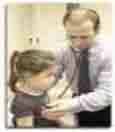What is Haze?
The haze is a state of poor air quality characterized by opalescent appearance of the atmosphere and reduces visibility.
It’s caused by high concentrations of air pollutants suspended in the atmosphere that scatter and absorb sunlight.
What are the air pollutants responsible for health effect during haze?
Main air pollutants during haze include:
- Particulate matter less than 10 mm/m 3 in diameter
- Ozone
- Carbon monoxide
- Nitrogen dioxide
- Sulfur dioxide
Air Pollution Index (API) and Health Effects
What is Air Pollution Index?
API is an index developed based on 5 air pollutants mentioned above to reflect the air quality status and it relation to health in easily understandable way for decision-making.
The API value:
|
API Value
|
Air Quality Status
|
Description
|
|---|---|---|
|
0 to 50
|
Good
|
–
|
|
51 – 100
|
Moderate
|
–
|
|
101 – 200
|
Unhealthy
|
Susceptible group. Might be affected
|
|
201 – 300
|
Very Unhealthy
|
General public are affected
|
|
Above 300
|
Dangerous
|
General public are affected
|
What are the possible effects of haze on health?
The effect of haze on health is associated with the severity of air quality status. The higher the API level, the stronger the effects on health.
Other factors such as duration and intensity of outdoors activities, smoking habit, age, and health status of individual also play an important rols in determining the health effect.
The possible health effects include;
- Difficulty in breathing
- Heart attack
- Throat irritation
- Eye irritation
- Upper respiratory tract infection
- Skin irritation
Susceptible group
Who’s at risk of developing health effect?
All people are at risk of developing health effects. However, certain groups are more susceptible to develop the health effects. The groups include;
- Children
- Elderly
- Patient with respiratory problem such as asthma and bronchitis.
- Patient with heart disease, and allergy.
- Smoker
Prevetion
How can I prevent or minimize the effects of haze on my health?
Health tips to minimize the effect of haze on health.
- Reduce outdoor activities.
- Avoid smoking.
- Drink plenty of water at least 2 liters a day.
- Frequent washing of hand and face after outdoor activities.

- Seek medical advice.

- Keep indoor environment clean.
If you are suffering from asthma or heart disease, please
- Make sure you have adequate supply of medicine.
- Take your medicine regularly.
- See your doctor immediately if your condition worsen.
Who should I consult?
Further information can be obtained from your doctor at:
Environmental Health Unit
Disease Control Division
Ministry of Health
Malaysia
| Last Reviewed | : | 26 April 2012 |
| Writer | : | Dr. Norlen Mohamed |
| Reviewer | : | Dr. Marzida Abd Latib |







